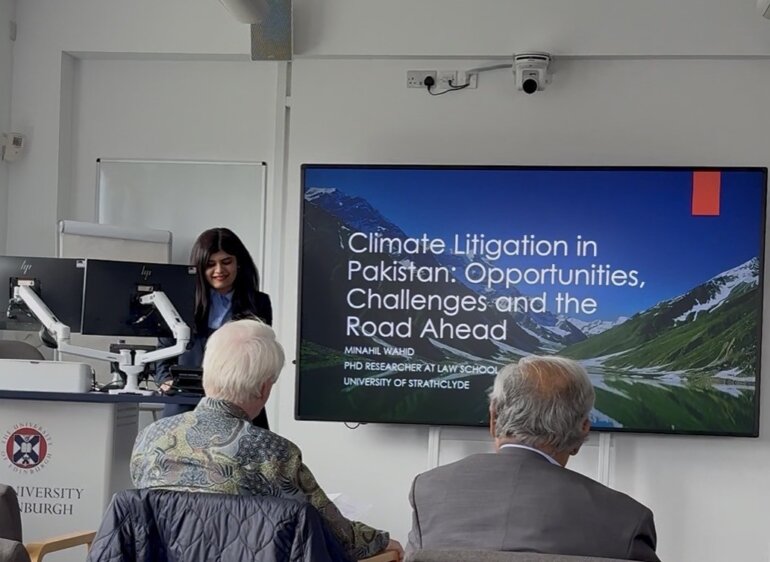Scotland study group update
The annual meeting of the Scotland Study Group took place at University of Edinburgh on 4th September, co-hosted with Edinburgh’s Centre for African Studies and Global Health Policy Unit. The event was a resounding success with more than 30 participants and presentations from a mix of established researchers, PhD students and colleagues from civil society organisations.
Camilla Toulmin (International Institute for Environment and Development – IIED) provided a fascinating keynote that traced the contemporary history of development aid in Africa, and the role of development studies and institutions within that. Camilla’s talk situated the current crisis in ODA within a wider trajectory of marginalisation of ODA and growing regional autonomy in Africa. Camilla posed a series of areas for a post-ODA agenda that were thought-provoking and encouraged significant discussion in the room.
Our first panel of speakers comprised Mozammel Huq (University of Strathclyde), Madushani Gunathilake (University of Glasgow), Mark Adams (Scottish Catholic International Aid Fund – SCIAF) and William Smith, Daniel Shephard and Fatih Aktas (all University of Edinburgh). Mozammel’s and Madushani’s presentations considered issues of poverty and poverty alleviation programming within the contexts of Bangladesh and Sri Lanka, respectively, raising questions around inequality and accountability in these contexts. Mark, William, Daniel and Fatih presented fine-grained analyses of recent trends in development aid commitments and the implications for those who work in, and use, aid-funded programmes.
In the middle of the day we held a highly engaging structured networking session. Participants had been asked to submit information on their research interests using an online form during the first half of the day, and these were compiled and then printed as a ‘bingo’ card. Everyone was then tasked with crossing off each set of research interests on their bingo card by circulating amongst other participants and finding out about each other’s work. Many congratulations to the activity’s winner – Beatrice Bonami!
A ‘Business Session’ saw convenorship for the Scotland Study Group being passed to Ben Hunter and Graeme Young, with several other members keen to contribute to a reformed management team in the Study Group. Members of the Study Group expressed their gratitude to Mike Tribe and Mozammel Huq for their many years (decades!) of leadership and for their resolve in keeping the Study Group active following the disruptions of the COVID-19 pandemic.

Our second panel of speakers comprised Jennifer Argent (University of Edinburgh), Pamela Jabbar (Independent Researcher), Minahil Wahid (University of Strathclyde), and David Kenvyn (Action for Southern Africa – ACTSA). Jenni and Pamela offered analyses of recent trends in the sector that make claims of ‘localisation’ and ‘decolonisation’, posing critical perspectives and questions around how ‘local’ is determined and to what extent decolonisation might simply reproduce the failures of the past. Minahil and David provided insights into recent attempts to hold actors to account using processes of litigation in Pakistan and Zambia, respectively, reflecting on the barriers faced and overcome, and the potential for future use of legal mechanisms in this way.
Many participants stayed on for a DSA workshop on racially minoritized early career researchers, led by Madhuri Kamtam with support from Laura Camfield, the first of a series planned to take place around the UK.
We thank DSA for supporting the Scotland Study Group meeting and encourage those interested in participating in future group events to join our mailing list – instructions for doing so can be found here.
Event co-organisers: Amrit Virk, Ben Hunter, Graeme Young and Jean-Benoît Falisse
